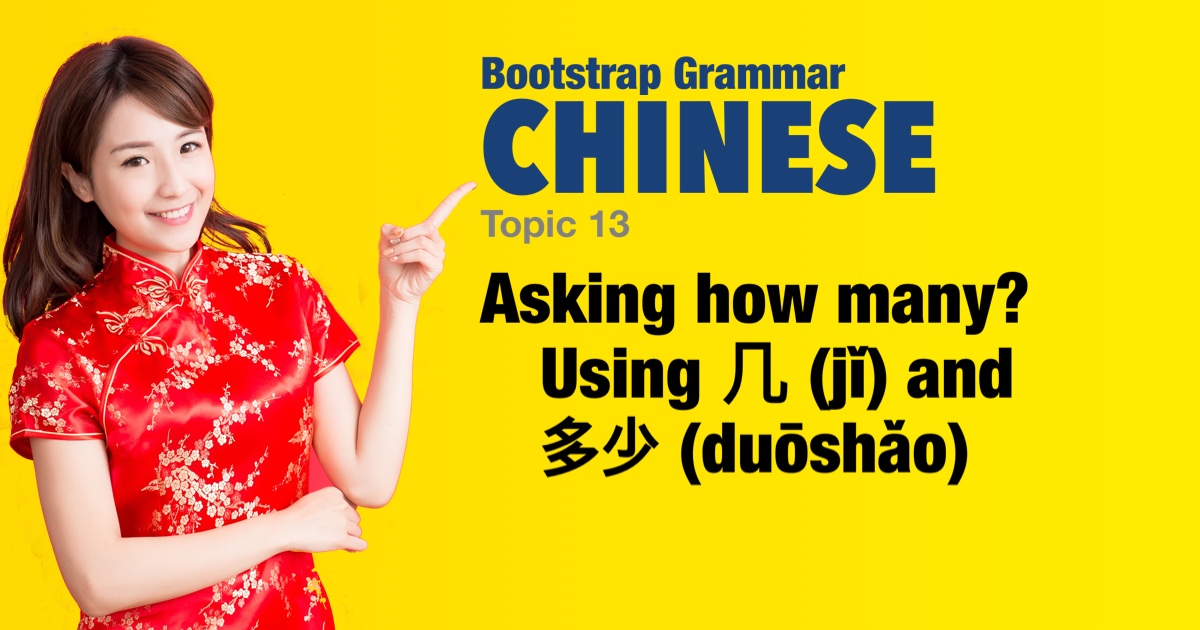Chinese grammar - Asking how many? Using 几 (jǐ) and 多少 (duōshǎo) |
|||
|
|||
In Chinese, there are two words to ask 'how many?': • The question word 几 (jǐ) is used when the number is likely to be small (perhaps less than ten). — Among other things 几 is used to ask about time, dates and age. We will see these uses in later topics. • The question word 多少 (duōshǎo) is used when the number is unknown and unbounded. — Among other things 多少 is used to ask about money, prices and durations .We will see these uses in later topics. Both of the question words need to be coupled with the appropriate measure word. - So we ask 几 + [counter]...? Or 多少 + [counter]...? |
| Examples: | |
|
你有多少个苹果?
nǐ yǒu duōshǎo gè píngguǒ? How many apples do you have?
|
|
|
有几张桌子?
yǒu jǐ zhāng zhuōzi? How many tables are there?
|
|
|
他有几本书?
tā yǒu jǐ běn shū? How many books does he have?
|
|
|
有多少人?
yǒu duōshǎo rén? How many people are there?
|
|
|
他有几个妹妹?
tā yǒu jǐ gè mèimei? How many (younger) sisters does he have?
|
|
|
你有几个兄弟?
nǐ yǒu jǐ gè xiōngdì? How many brothers do you have?
|
|
|
有多少个孩子?
yǒu duōshǎo gè háizi? How many children are there?
|
|
|
有多少张纸?
yǒu duōshǎo zhāng zhǐ? How many sheets of paper are there?
|
|
|
你有几支笔?我有三支。
nǐ yǒu jǐ zhī bǐ?#wǒ yǒu sān zhī. How many pens do you have? I have three. |
|
|
他有几个孩子?他有两个。
tā yǒu jǐ gè háizi?#tā yǒu liǎng gè. How many children does he have? He has two. |
|
|
你有多少钱?
nǐ yǒu duōshǎo qián? How much money do you have?
|
|
 |
|


 In a bushel
In a bushel
